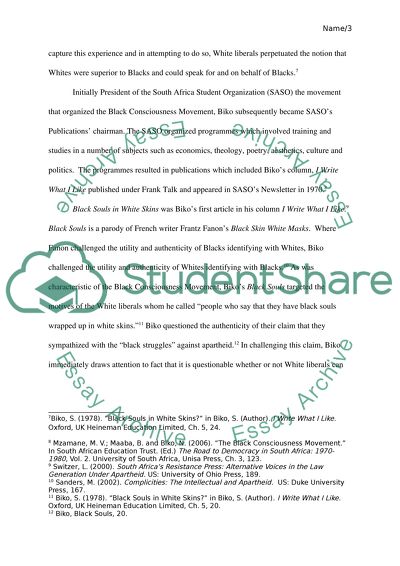Cite this document
(Textual Commentary on Black Souls in White Skins in I Write What I Term Paper, n.d.)
Textual Commentary on Black Souls in White Skins in I Write What I Term Paper. Retrieved from https://studentshare.org/history/1457604-textual-commentary-on-black-souls-in-white-skins-in-i-write-what-i-like-by-steve-biko
Textual Commentary on Black Souls in White Skins in I Write What I Term Paper. Retrieved from https://studentshare.org/history/1457604-textual-commentary-on-black-souls-in-white-skins-in-i-write-what-i-like-by-steve-biko
(Textual Commentary on Black Souls in White Skins in I Write What I Term Paper)
Textual Commentary on Black Souls in White Skins in I Write What I Term Paper. https://studentshare.org/history/1457604-textual-commentary-on-black-souls-in-white-skins-in-i-write-what-i-like-by-steve-biko.
Textual Commentary on Black Souls in White Skins in I Write What I Term Paper. https://studentshare.org/history/1457604-textual-commentary-on-black-souls-in-white-skins-in-i-write-what-i-like-by-steve-biko.
“Textual Commentary on Black Souls in White Skins in I Write What I Term Paper”, n.d. https://studentshare.org/history/1457604-textual-commentary-on-black-souls-in-white-skins-in-i-write-what-i-like-by-steve-biko.


